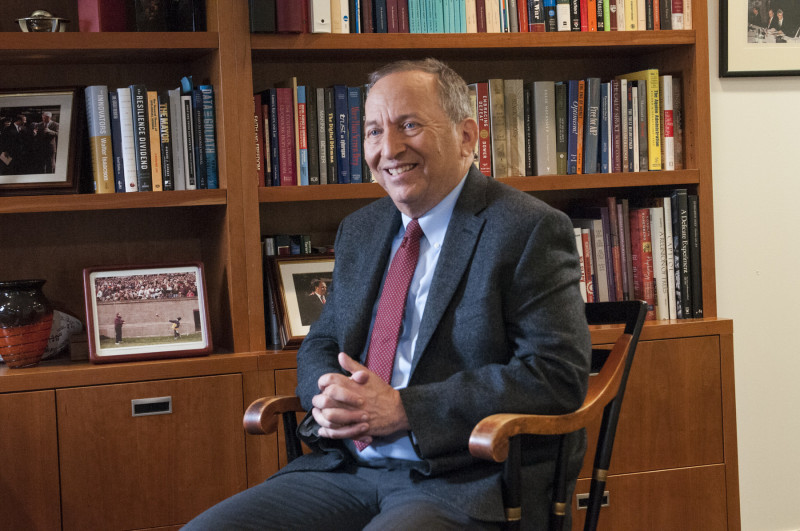Larry Summers, a prominent figure in the world of economics, is facing intense scrutiny and public backlash over a series of recently released emails that reveal his ongoing communications with the disgraced financier Jeffrey Epstein. Summers, who served as the U.S. Treasury Secretary under President Clinton and as the President of Harvard University, has found himself at the center of a media storm following the publication of these emails, which demonstrate a continued relationship with Epstein even after the financier's legal troubles became public.
The emails, part of a larger cache of 20,000 documents released by the House Oversight Committee, have sparked widespread condemnation. They show that Summers maintained friendly communications with Epstein until as late as March 2019, just months before Epstein's death in a New York jail cell. The content of these emails has raised serious questions about Summers' judgment and ethical standards, particularly given his prominent roles in both academia and public policy.
The fallout from these revelations has been swift and severe. Summers has announced that he will step back from his public commitments, a move that has been widely supported by the academic and political communities. The New York Times, a publication where Summers had been a contributing columnist, has also cut ties with him over the controversy, citing the seriousness of the allegations and the need for ethical integrity in public discourse.
Summers' relationship with Epstein, as detailed in the emails, goes beyond mere professional interactions. In a sequence of texts and emails, Summers sought Epstein's advice on romantic pursuits, including how to deal with a woman he described as a mentee. The nature of these requests has further complicated the public's perception of Summers, adding a layer of personal impropriety to the already troubling professional relationship.
Perhaps most troubling is the context in which these emails were released. Epstein, who had previously pleaded guilty to soliciting prostitution from an underage girl, was already under intense scrutiny at the time of his death. The fact that Summers continued to engage with Epstein, despite this known history, has led many to question his judgment and the ethical standards of those in positions of power.
The revelations have also prompted a broader conversation about the nature of influence and power in Washington and beyond. Epstein's extensive network of high-profile contacts, including Summers, has brought to light the ways in which powerful individuals can insulate themselves from public scrutiny and accountability. The ongoing investigation by the Department of Justice, directed by President Trump, aims to shed further light on these relationships and their implications for public trust and integrity.
The release of these emails has had a profound impact not only on Summers' career but also on the institutions with which he is associated. Harvard University, where Summers once served as president, has faced renewed scrutiny over its own policies and ethical standards. The incident serves as a stark reminder of the importance of transparency and accountability in academic and public life.
As the public continues to grapple with the implications of these revelations, one thing is clear: the fallout from Larry Summers' emails with Jeffrey Epstein will have far-reaching consequences. For Summers, it represents a significant setback in a career marked by both achievement and controversy. For the broader public, it raises critical questions about the nature of power, influence, and ethical responsibility. As the investigation continues and new details emerge, the story of Larry Summers and Jeffrey Epstein will undoubtedly shape the ongoing debate over accountability and integrity in public life.



